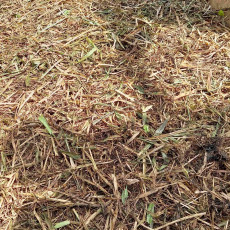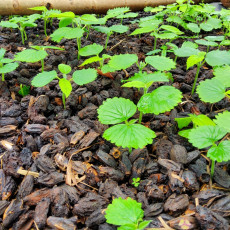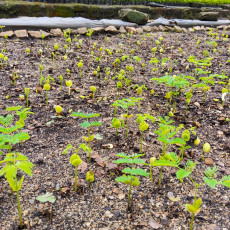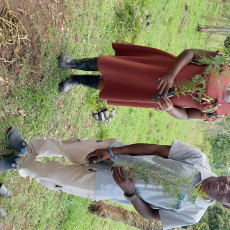The adverse effects of climate change on agriculture, especially in at-risk areas, require innovative solutions. To address this issue, the Building Climate Resilience Through Agroforestry project encouraged smallholder farmers in Uganda’s Kasese and Bunyangabu districts to adopt sustainable agroforestry methods.
This project aimed to empower smallholder farmers through the establishment of sustainable agroforestry systems.
Sustainable Agri-Food Initiative (SAFI) collaborated with a nursery operator to cultivate tree seedlings that are appropriate for the local climate and agricultural requirements. SAFI identified, trained, and supported 47 farmers in two districts of the Rwenzori region. Forty-seven farmers underwent training on best practices in agroforestry through a comprehensive approach. A total of 3,047 fruit and timber tree seedlings were distributed to participating farmers. SAFI conducted a follow-up to evaluate the survival rates of planted trees, thereby assessing project effectiveness.
The project specifically addressed the adverse effects of climate change on agriculture. Agroforestry presents a comprehensive solution. The project sought to mitigate soil erosion, a common problem in the region, by integrating trees into existing farming systems. Established trees contribute to soil fertility by facilitating organic matter decomposition and promoting nitrogen fixation.
This procedure enhances resilience to unpredictable weather patterns, characteristic of climate change, by improving soil moisture retention and regulating microclimates. Trees function as natural buffers, decreasing wind velocities and mitigating the effects of intense rainfall on soil erosion. Additionally, their presence facilitates evapotranspiration, a mechanism that cools the ambient air and aids in alleviating the impacts of increasing temperatures.
Unforeseen funding limitations resulted in the project’s premature conclusion; however, the established groundwork presents considerable potential for future developments. The project’s legacy focuses on providing farmers with the necessary knowledge and resources to establish a sustainable and climate-resilient future.
The initiative can significantly enhance the region’s long-term agricultural development and food security through the promotion of agroforestry practices.







